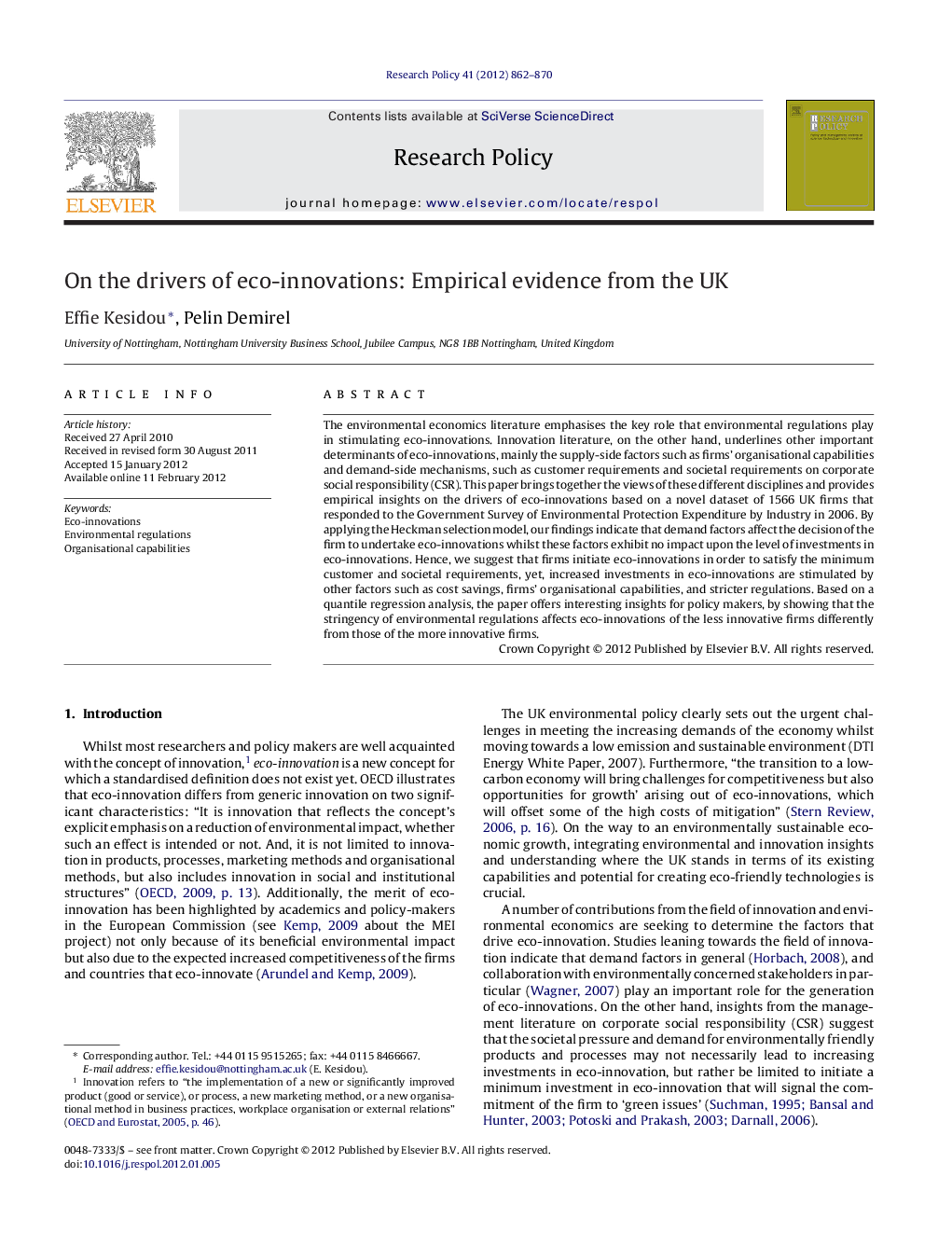| Article ID | Journal | Published Year | Pages | File Type |
|---|---|---|---|---|
| 985161 | Research Policy | 2012 | 9 Pages |
The environmental economics literature emphasises the key role that environmental regulations play in stimulating eco-innovations. Innovation literature, on the other hand, underlines other important determinants of eco-innovations, mainly the supply-side factors such as firms’ organisational capabilities and demand-side mechanisms, such as customer requirements and societal requirements on corporate social responsibility (CSR). This paper brings together the views of these different disciplines and provides empirical insights on the drivers of eco-innovations based on a novel dataset of 1566 UK firms that responded to the Government Survey of Environmental Protection Expenditure by Industry in 2006. By applying the Heckman selection model, our findings indicate that demand factors affect the decision of the firm to undertake eco-innovations whilst these factors exhibit no impact upon the level of investments in eco-innovations. Hence, we suggest that firms initiate eco-innovations in order to satisfy the minimum customer and societal requirements, yet, increased investments in eco-innovations are stimulated by other factors such as cost savings, firms’ organisational capabilities, and stricter regulations. Based on a quantile regression analysis, the paper offers interesting insights for policy makers, by showing that the stringency of environmental regulations affects eco-innovations of the less innovative firms differently from those of the more innovative firms.
